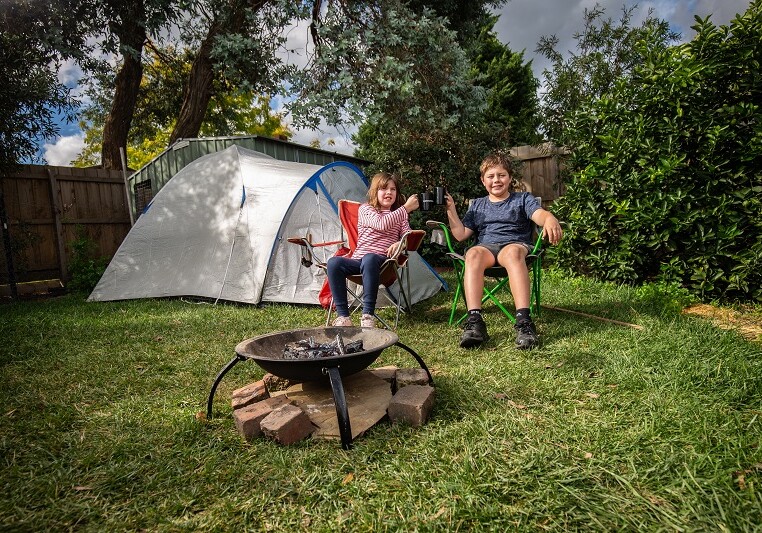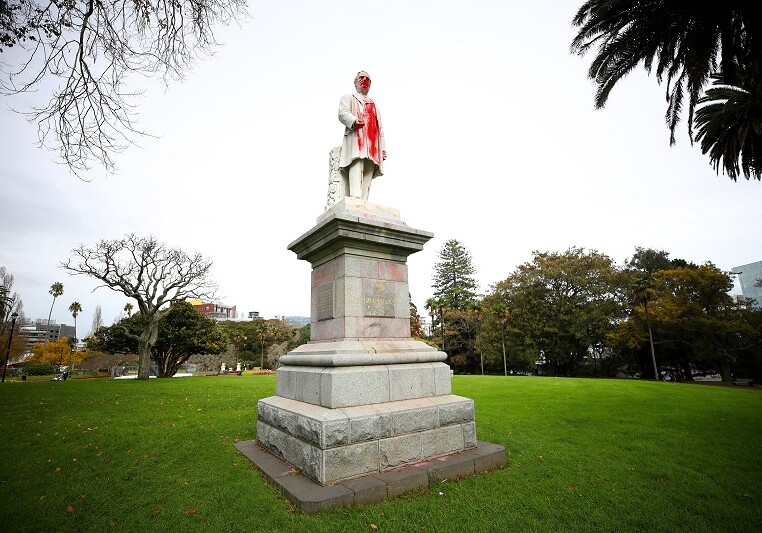CONSUMER PULSE

We are living in uncertain times, but one thing is certain; the better we understand audiences, the better we can serve their needs and wants as marketers. In response to the COVID-19 crisis, Nine has launched a weekly consumer sentiment poll to understand how we can help brands connect with our audiences in 2020.
Nine. Where Australia Connects.
Methodology
Consumer Pulse is undertaken via short online surveys (conducted weekly) and deeper dive surveys (conducted monthly) with Nine’s audiences - across linear television, 9Now and digital properties nine.com.au (and network sites), plus readers of news mastheads The Sydney Morning Herald, The Age and The Australian Financial Review (print + digital).
Capturing the mood
Week 13 - commencing 15th June 2020
Headline Sentiments
“Feeling fortunate”
“Unsure if it is finished”
“I worry that all the beautiful things we learnt in isolation will be lost”
Topical themes

Staycations
of 9Nation audiences with kids say they won’t travel interstate for school holidays if interstate travel bans are lifted (27% say they will, 21% are undecided).

Revisiting history
Readers of The Age are divided on the issue of removing statues of contentious historical figures. 38% say they shouldn’t be removed, 34% say they should, 28% are unsure.

New social etiquette
35% of 9Nation audiences won’t hug or shake hands with people outside their inner circle at first (30% will only do this with close acquaintances from now on, 14% have no hesitations, 13% say they never had the habit)
Mood tracker - positive overall
The mood continued to lift this week and positive emotions continue to dominate.
Positive emotions trending up
NOTE: For the best viewing experience on mobile, please view landscape.
Divided Opinions
Audiences are beginning to express growing frustrations in the comments, particularly regarding government policies and responses. Often these sentiments are conflicting. There are those who feel grateful for Australia’s fortunate position, those frustrated with continuing restrictions (especially in Victoria), those who worry about an overly-hasty ‘return to normal’ and those who worry about financial support being removed too quickly. There are those who are angry at ‘reckless’ protesters amid health risks, and those angry about abuse of power and curbing liberties in quelling them. There are those who are keen to reopen Australian borders, and those who are keen for Australia to become more self-sufficient. These show the challenges for business and political leaders alike navigating the coming months.
Buying local
One issue drawing greater consensus however is that of the need to support local businesses in the current climate.
‘Local’ can mean different things to different people, so we asked which type of ‘local’ businesses audiences were most interested in supporting – from the ‘very local’ in their suburb / local area to the ‘somewhat local’ in their city, region or state, to the ‘broadly local’ - meaning businesses owned and operated in Australia.
Overall, 9 in 10 are interested in supporting local businesses of any kind. Audiences tend to prioritise ‘very local’ or Australian-owned businesses moreso than ‘somewhat local’ businesses from their city, region or state.
But there are also differences:
- Women are more likely than men to want to support local businesses of all kind
- Financial Review readers are more likely than other audience groups to support businesses in their suburb / local area
- Those in Queensland, South Australia and Western Australia are more motivated to support businesses from their state than those in NSW and Victoria.
Audiences are most interested in supporting businesses in
NOTE: For the best viewing experience on mobile, please view landscape.
What motivates audiences to buy local
8 in 10 said they would be encouraged to buy from a business if they knew it was either Australian-owned, locally-owned, family-owned or independently-owned.
Beyond this, top motivations for audiences include:
- shopping with businesses that have products or services that fit their needs (6 in 10)
- were affected by 2019 events such as drought, bushfires or floods (4 in 10)
- are actively helping the community (4 in 10)
- have values that align with audiences’ personal values (3 in 10)
- or have options for online purchases (3 in 10).
In the comments there were a range of other motivations for buying local - including lower or more affordable prices, higher value, higher quality, products that are Australian-manufactured, sourced or processed, are sustainable or environmentally-friendly, have a low carbon footprint, are able to be reused or recycled, are ethical or cruelty-free, from businesses that are valued by the community, paid local taxes, paid workers fairly, are safer or healthier than foreign alternatives.
Motivations to buy local
NOTE: For the best viewing experience on mobile, please view landscape.
The value of small and medium business: diversity and personality
We also explored the value of smaller and medium businesses via a ‘deprivation-style’ question – asking what audiences would miss if favourite businesses were no longer operating.
Broadly, the value of smaller and medium businesses came from the diversity and personality they bring to the landscape, as well as general ‘good feelings’ associated with using them.
Diversity includes:
- The overall value to the community of diverse businesses (important to 6 in 10)
- Variety and choice of products and services e.g. access to unique, varied, favourite or exclusive to those businesses (important to 2 in 3)
- The challenge they represent to bigger businesses (important to 1 in 4)
Personality includes:
- The people who work there (important to 1 in 2)
- Community personality or character that comes from these businesses (important to 1 in 2)
- The value of specialist knowledge or expertise of people who work there (important to 4 in 10)
- The history or character of businesses (important to 3 in 10)
More generally, audiences also value:
- the good feelings they get from using smaller or medium businesses (important to 1 in 3)
- having focal points for the community (important to 1 in 4), and
- the way they improve life (1 in 10)
What audiences value about small and medium business
NOTE: For the best viewing experience on mobile, please view landscape.
Other sentiments
In the comments, some were pragmatic about the current climate and the viability of some smaller or medium businesses:
“If you are good and provide value the business will survive. No handouts to support inferiority”
“This is an issue at the margins for me. I am happy to support local shops, but cannot save the economy by my actions”
“Can't stop evolution”
But overall, sentiments were positive about the contribution of these businesses to the economy, and their general value to communities including a sense of familiarity, personal contact and interaction, reduction of social isolation, a sense of vibrancy, and proximity:
“I value their contribution to Australia as a whole (ie unemployment, lost tax revenue, economic impact)”
“The value and activity that they bring in the local community and nation”
“Their contribution to a vital high street”
“[Without them] I would miss the sense of hope for Australia's future”
Contact your Nine advertising representative today
to hear how Nine’s marketing solutions can help you engage Australian consumers like never before.

